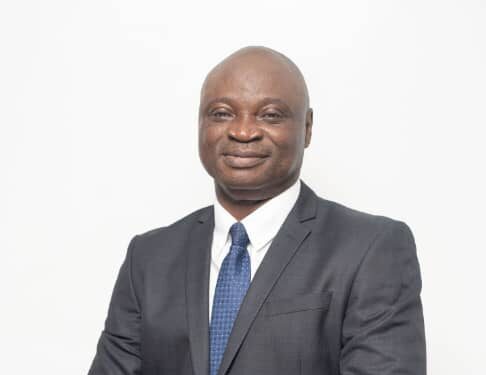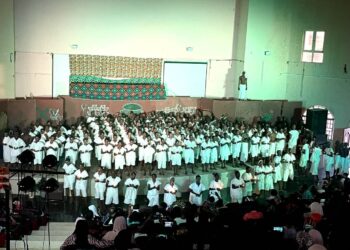By: Adewuyi Adegbite
Hon. Justice Ezekiel Oyeyemi Ajayi, a distinguished jurist of the Oyo State High Court, celebrates his 60th birthday on August 21, 2025. From humble beginnings, Ajayi has risen through hard work, perseverance, unwavering purpose, and deep faith in God to become a pillar in Nigeria’s judiciary. Beyond his judicial accomplishments, Ajayi has also excelled in various fields, including community leadership, authorship, and contributions to the Lord’s vineyard.

Sworn in as a judge of the Oyo State High Court in 2013 during Senator Abiola Ajimobi’s administration, Ajayi has built an illustrious career rooted in integrity, legal insight, and an unwavering commitment to justice. His judicial decisions, many of which have been upheld by the Court of Appeal, span civil, criminal, and electoral matters. His influence extends far beyond the bench, having significantly contributed to shaping jurisprudence and reinforcing public trust in Nigeria’s judiciary. Known for his uncommon integrity, Ajayi has upheld values such as fairness and excellence in every aspect of his work.
A Fellow of the Institute of Chartered Mediators and Conciliators (FICMC) and the Chartered Institute of Arbitrators (FCIArb), Ajayi’s contributions to the Nigerian judiciary have been widely recognized. He has been appointed to several judicial arbitration bodies at both the state and federal levels. His notable roles include serving as a member of the Oyo State Local Government Election Tribunal (2019) and the Oyo State Local Government Election Appeal Tribunal (2022). At the federal level, he was appointed as the Chairman of the Governorship Election Tribunal in Nasarawa State (2023).
A philanthropist at heart, Ajayi has been a beacon of hope for the less privileged and vulnerable in society. His efforts have primarily focused on supporting youth in their pursuit of education and career advancement, as well as welfare initiatives. As a community leader in his native Ogbomoso, Ajayi has been widely acknowledged for his contributions to community development, integrity, and professionalism in his service to the nation. His dedication has earned him several accolades, including the Integrity Award from the Ogbomoso Pivotal Club and the Distinguished Service Award from the Ogbomoso Valiant Club in 2023. He is also the author of the book Who is Who in Ogbomoso Township (1993), which chronicles the lives and contributions of Ogbomoso natives who have impacted their community.
Born on August 21, 1965, into the renowned Abese Lagbedu Chieftaincy family of Ogbomoso South Local Government, Ajayi is the son of Pa Emmanuel Ajayi Binutu and Madam Ayoka Olalonpe Ajayi. His educational journey began at Methodist Primary School, Arowomole, Ogbomoso (1972-1978), followed by secondary school at Soun High School, Ogbomoso (1972-1978). He earned his Higher School Certificate (HSC) at the Federal School of Arts and Science, Suleja, in 1987. Ajayi proceeded to the University of Lagos, where he obtained his LLB from 1986 to 1992. He then attended the prestigious Nigerian Law School in Lagos, where he completed his B.L. in 1993.
Ajayi’s legal career commenced at Agbo Olaleye and Co. in 1994, before he established his own firm, Yemi Ajayi and Co., in 1998. His exemplary practice at the bar contributed to his appointment to the bench in 2013.
Now, at 60, Justice Ezekiel Oyeyemi Ajayi has lived an exemplary life—both as a barrister, a judge, and a community leader—worthy of emulation by his contemporaries, as well as aspiring lawyers and judges. His legacy continues to inspire those seeking success in the legal profession.
By Adewuyi Adegbite
ayekooto05@gmail.com
You can get every of our news as soon as they drop on WhatsApp ...To get all news updates, Join our WhatsApp Group (Click Here)






